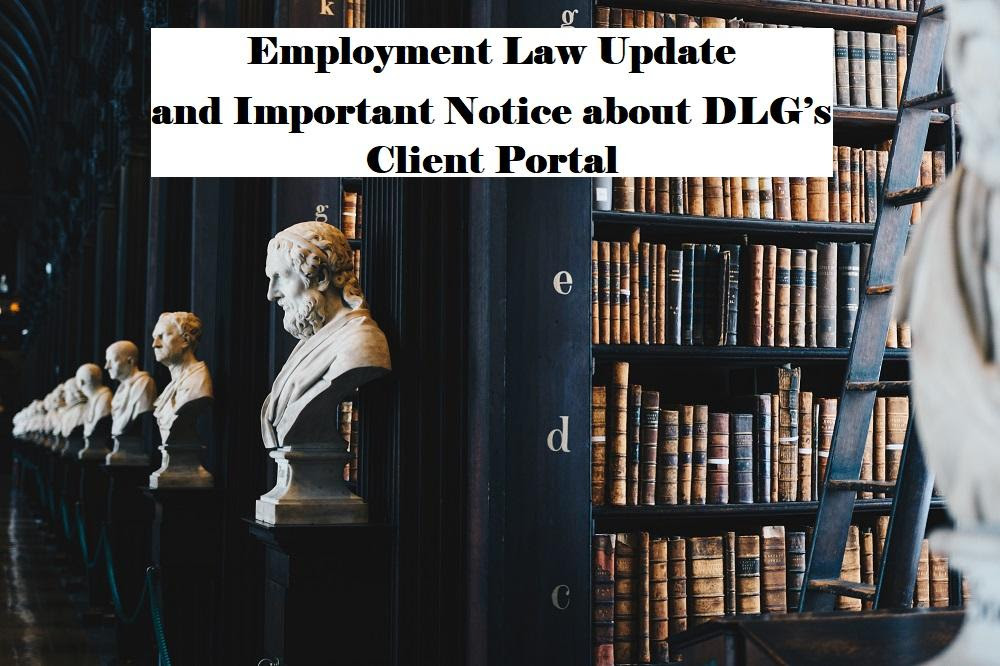Fines for Failure to Post Appropriate Notices
Businesses with employees are required to have certain postings by state and federal laws. Each year, the US Department of Labor (“DOL”) increases its posting penalties to account for inflation.
The DOL will raise rates again in January, but the current maximum fines per violation are:
Fair Labor Standards Act: between $1,084 and $120,230, depending on the type of violation
Family and Medical Leave Act (FMLA): $178
Job Safety and Health: It’s the Law (OSHA): $13,653 (up to $136,532 for willful or repeated violations)
Employee Polygraph Protection Act (EPPA): $21,663
There are also a number of immigration related employment laws with fines for noncompliance ranging from $1,787 to $119,055. More information about these civil fines is available on the DOL’s Civil Money Penalty Inflation Adjustments webpage.
As a business, you should make sure that you have all required postings. Use the FirstStep Poster Advisor to see which posters federal law requires at your business.
You can review Oregon’s posting requirements at the Bureau of Labor & Industries’ website and Washington’s posting requirements at the Department of Labor & Industries website.
Oregon’s Noncompetition Law
We alerted you to changes in Oregon’s noncompetition laws earlier this year. Given that the new law takes effect in less than a month, we wanted to remind you about the new requirements.
Minimum Salary Requirement
A noncompetition agreement will be void unless the employee makes at least $100,533 a year in gross salary plus commissions. This figure will be adjusted annually for inflation.
Under the current law, the salary and commissions need only exceed “the median family income for a four-person family, as determined by the [U.S.] Census Bureau for the most recent year available at the time of the employee’s separation from service.”
In some cases, an employee can be subjected to noncompetition restrictions despite not earning the minimum salary, but it requires the employer to pay the employee during the restricted period at the rate of the greater of 50% of the (a) employee’s salary and commissions at the time of termination or (b) the required minimum salary (that is, under the new law, $100,533 and under the current law, the median family income for a four-person family).
Maximum Time of Restriction
In addition, the new law provides that the longest valid noncompetition agreement will be 12 months, rather than the current 18 months. Before 2016, a two-year restriction was valid.
Agreements Must Be in Writing
The new law makes clear that noncompetition agreements must be written, not oral or implied, and adds a writing requirement to the exception for those who don’t earn enough salary to be subjected to a noncompetition restriction.
That is, if an employee does not meet the salary requirements, a noncompetition agreement can still be enforced so long as the employer agrees in writing to pay the employee the required amounts for the entire length of the restriction.
Under the law in effect now, the employer is required only to make the payments, not to agree in writing to do so.
Noncompliant Agreements Are Void
Currently noncompetition agreements that don’t comply with the law are “voidable.” Some courts have interpreted this to mean that an employee must take affirmative action to void a noncompetition agreement that is not in compliance.
In other words, an agreement that doesn’t comply with the law isn’t void unless the employee notifies the employer of the employee’s intent to void the agreement.
Under the new law, agreements that don’t comply with statutory requirements will automatically be void with no action required by employees.
Whether you’re an employee or an employer, and whether you’re in Oregon or another state, please feel free to contact us if you have any questions about noncompetition restrictions, posting requirements, or any other aspect of employment law.
***************
IMPORTANT NOTICE
ABOUT THE DUBOFF LAW GROUP’S CLIENT PORTAL
We are experiencing technical issues with our client portal. Until those issues are fully resolved, please email us directly with files rather than uploading them to the client portal. If a file is too large to email, please contact us for other options.
Photo by Giammarco on Unsplash






